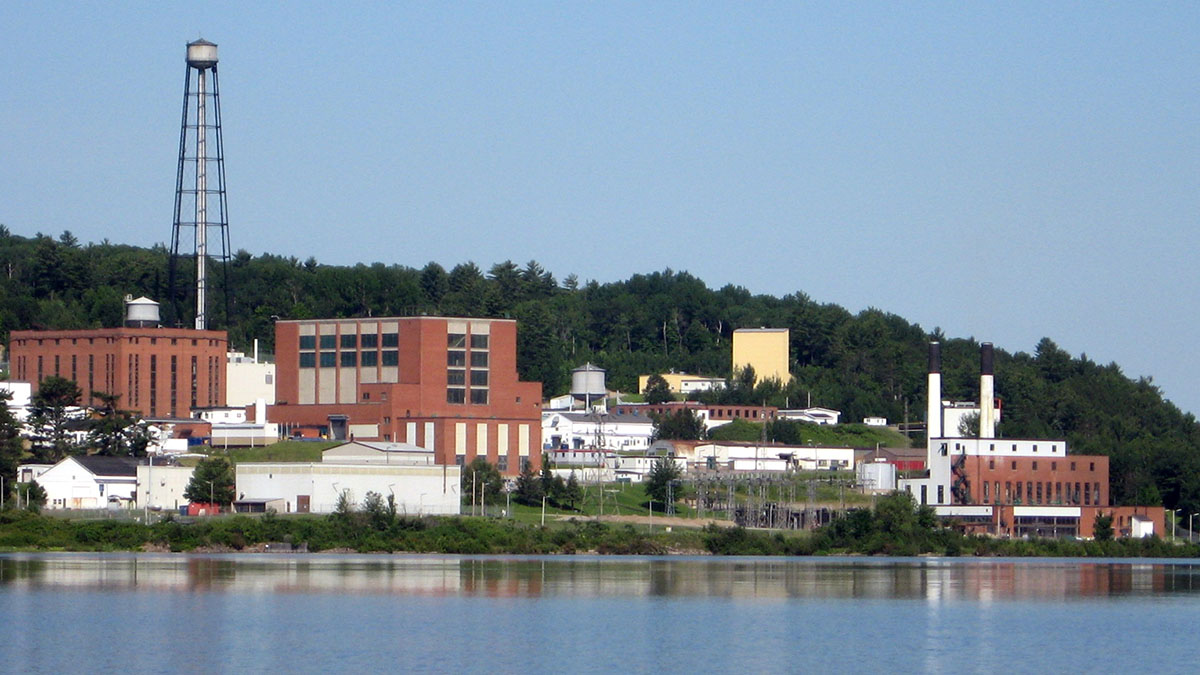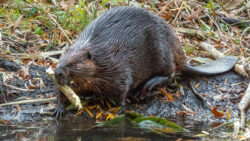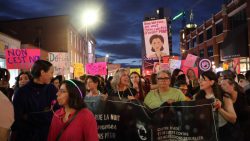Members of the Kebaowek First Nation are buoyed by a successful concert fundraiser they say will help them continue their fight against a proposed nuclear waste facility that would be located near the Ottawa River about 150 kilometres north-west of Ottawa.
The Near Surface Disposal Facility, or NSDF, was approved on Jan. 9. According to a background document, “[t]he purpose of the NSDF Project is to provide a permanent disposal solution for up to one million cubic metres of solid low-level radioactive waste, such as contaminated personal protective clothing and building materials.” The facility would be built about one kilometre from the existing Chalk River Laboratories facility.
The decision is opposed by Indigenous and environmental groups. Less than a month after the decision, the Kebaowek First Nation filed for a judicial review.
The First Nation organized a concert for Nov. 22 to raise money for their legal fight, which raised more than $14,000. Organizers Eva Schacherl and Cheryl Gorman initially aimed to raise $10,000 but were “thrilled” to surpass that goal.
Gorman said the concert was about more than fundraising.
“It’s way more than raising money for the legal challenge, which is in itself really important,” she said. “There’s also the need to raise awareness about the issue.”
The concert, Riversong 2: Concert for the Kichi Sibi, was organized by allies with input and guidance from Kebaowek leaders. Featuring six performances and a silent auction, the sold-out event donated all proceeds to the legal challenge.
The Kebaowek First Nation’s fight is based on the United Nations Declaration Act (UNDA), which incorporates the United Nations Declaration on the Rights of Indigenous Peoples (UNDRIP) into Canadian law. UNDRIP requires free, prior and informed consent for hazardous waste projects on Indigenous lands, something the community claims did not happen.
The Canadian Nuclear Safety Commission (CNSC), which reviewed and approved the NSDF project in January, declined comment, citing the ongoing legal challenges. CNSC media relations stated in an email that “the CNSC welcomes the Federal Court’s review of the Commission decision and any direction the Court may have.”
Many critics of the NSDF cite its proximity to the Ottawa River as a major reason for their opposition. Environmental groups and local activists have raised concerns about the risks posed by storing nuclear waste near such a central waterway to large cities and wildlife habitats. During a speech given at the concert, Kebaowek Chief Lance Haymond claimed that the facility held “long-term environmental risks.”
“The Ottawa River is an important cultural, economic and ecological resource. It sustains local communities, wildlife, waters, and our life of fishing, drinking, and recreation,” said Haymond. “It’s not only about protecting our traditional territories, but also about safeguarding the rivers and equity for all that depend on it.”
The concert was as much a cultural event as it was a cry for justice. Gorman and Schacherl organized Riversong 2 as a way to bring the community together in support of their cause. When it came to figuring out their lineup of performers, Gorman and Schacherl say the process was a “beautiful anarchy.”
“I knew some people, Cheryl [Gorman] knew some people, and as we started reaching out, we suddenly had all these artists and all these wonderful teams of volunteers who were jumping on board,” said Schacherl.
“Without intentionally or consciously planning it, we ended up with a very diverse group of Indigenous-focused, justice-focused performers that really care about the river,” added Gorman.
Pat Mayberry is a local singer-songwriter who performed at Riversong 2. She cited water and the river as huge inspirations for her music, which prompted her to participate in the event.
“We are nothing without water. We all need water for so many things in our lives. Without water, we just … we can’t live,” said Mayberry. “I want to do whatever I can to help protect it, and to support the catalytic First Nation who are launching this legal challenge against the river dump site.”
Mayberry was just one of six performers from the concert. Riversong 2 also featured Canadian folk artist Ian Tamblyn, the Celtic group Dolas, Just Voices Choir, Drew Gonsalves of the band Kobo Town and Kebaowek First Nation singers and drummers.
Throughout the event, each performer expressed a shared commitment to protecting the Ottawa River and amplifying the voices of those fighting for justice. For Gorman, the concert’s success was not only a testament to community solidarity but also a reminder of the broader significance of the issue.
“I think this issue, part of the reason it’s been able to be hidden for so long, and why I didn’t know about it for so long, is that it’s been painted as a purely Indigenous issue when it’s a people issue. It’s an environment issue, it’s an everything issue,” she said. “We’ll remember when we win, when the time comes and we can stand proud and with joy to say we were there. We did it. We did good things together.”




